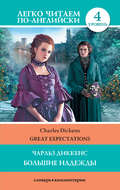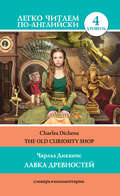
Чарльз Диккенс
Sketches by Boz, Illustrative of Every-Day Life and Every-Day People
THE ‘THROWING-OFF’ YOUNG GENTLEMAN
There is a certain kind of impostor – a bragging, vaunting, puffing young gentleman – against whom we are desirous to warn that fairer part of the creation, to whom we more peculiarly devote these our labours. And we are particularly induced to lay especial stress upon this division of our subject, by a little dialogue we held some short time ago, with an esteemed young lady of our acquaintance, touching a most gross specimen of this class of men. We had been urging all the absurdities of his conduct and conversation, and dwelling upon the impossibilities he constantly recounted – to which indeed we had not scrupled to prefix a certain hard little word of one syllable and three letters – when our fair friend, unable to maintain the contest any longer, reluctantly cried, ‘Well; he certainly has a habit of throwing-off, but then – ’ What then? Throw him off yourself, said we. And so she did, but not at our instance, for other reasons appeared, and it might have been better if she had done so at first.
The throwing-off young gentleman has so often a father possessed of vast property in some remote district of Ireland, that we look with some suspicion upon all young gentlemen who volunteer this description of themselves. The deceased grandfather of the throwing-off young gentleman was a man of immense possessions, and untold wealth; the throwing-off young gentleman remembers, as well as if it were only yesterday, the deceased baronet’s library, with its long rows of scarce and valuable books in superbly embossed bindings, arranged in cases, reaching from the lofty ceiling to the oaken floor; and the fine antique chairs and tables, and the noble old castle of Ballykillbabaloo, with its splendid prospect of hill and dale, and wood, and rich wild scenery, and the fine hunting stables and the spacious court-yards, ‘and – and – everything upon the same magnificent scale,’ says the throwing-off young gentleman, ‘princely; quite princely. Ah!’ And he sighs as if mourning over the fallen fortunes of his noble house.
The throwing-off young gentleman is a universal genius; at walking, running, rowing, swimming, and skating, he is unrivalled; at all games of chance or skill, at hunting, shooting, fishing, riding, driving, or amateur theatricals, no one can touch him – that is could not, because he gives you carefully to understand, lest there should be any opportunity of testing his skill, that he is quite out of practice just now, and has been for some years. If you mention any beautiful girl of your common acquaintance in his hearing, the throwing-off young gentleman starts, smiles, and begs you not to mind him, for it was quite involuntary: people do say indeed that they were once engaged, but no – although she is a very fine girl, he was so situated at that time that he couldn’t possibly encourage the – ‘but it’s of no use talking about it!’ he adds, interrupting himself. ‘She has got over it now, and I firmly hope and trust is happy.’ With this benevolent aspiration he nods his head in a mysterious manner, and whistling the first part of some popular air, thinks perhaps it will be better to change the subject.
There is another great characteristic of the throwing-off young gentleman, which is, that he ‘happens to be acquainted’ with a most extraordinary variety of people in all parts of the world. Thus in all disputed questions, when the throwing-off young gentleman has no argument to bring forward, he invariably happens to be acquainted with some distant person, intimately connected with the subject, whose testimony decides the point against you, to the great – may we say it – to the great admiration of three young ladies out of every four, who consider the throwing-off young gentleman a very highly-connected young man, and a most charming person.
Sometimes the throwing-off young gentleman happens to look in upon a little family circle of young ladies who are quietly spending the evening together, and then indeed is he at the very height and summit of his glory; for it is to be observed that he by no means shines to equal advantage in the presence of men as in the society of over-credulous young ladies, which is his proper element. It is delightful to hear the number of pretty things the throwing-off young gentleman gives utterance to, during tea, and still more so to observe the ease with which, from long practice and study, he delicately blends one compliment to a lady with two for himself. ‘Did you ever see a more lovely blue than this flower, Mr. Caveton?’ asks a young lady who, truth to tell, is rather smitten with the throwing-off young gentleman. ‘Never,’ he replies, bending over the object of admiration, ‘never but in your eyes.’ ‘Oh, Mr. Caveton,’ cries the young lady, blushing of course. ‘Indeed I speak the truth,’ replies the throwing-off young gentleman, ‘I never saw any approach to them. I used to think my cousin’s blue eyes lovely, but they grow dim and colourless beside yours.’ ‘Oh! a beautiful cousin, Mr. Caveton!’ replies the young lady, with that perfect artlessness which is the distinguishing characteristic of all young ladies; ‘an affair, of course.’ ‘No; indeed, indeed you wrong me,’ rejoins the throwing-off young gentleman with great energy. ‘I fervently hope that her attachment towards me may be nothing but the natural result of our close intimacy in childhood, and that in change of scene and among new faces she may soon overcome it. I love her! Think not so meanly of me, Miss Lowfield, I beseech, as to suppose that title, lands, riches, and beauty, can influence my choice. The heart, the heart, Miss Lowfield.’ Here the throwing-off young gentleman sinks his voice to a still lower whisper; and the young lady duly proclaims to all the other young ladies when they go up-stairs, to put their bonnets on, that Mr. Caveton’s relations are all immensely rich, and that he is hopelessly beloved by title, lands, riches, and beauty.
We have seen a throwing-off young gentleman who, to our certain knowledge, was innocent of a note of music, and scarcely able to recognise a tune by ear, volunteer a Spanish air upon the guitar when he had previously satisfied himself that there was not such an instrument within a mile of the house.
We have heard another throwing-off young gentleman, after striking a note or two upon the piano, and accompanying it correctly (by dint of laborious practice) with his voice, assure a circle of wondering listeners that so acute was his ear that he was wholly unable to sing out of tune, let him try as he would. We have lived to witness the unmasking of another throwing-off young gentleman, who went out a visiting in a military cap with a gold band and tassel, and who, after passing successfully for a captain and being lauded to the skies for his red whiskers, his bravery, his soldierly bearing and his pride, turned out to be the dishonest son of an honest linen-draper in a small country town, and whom, if it were not for this fortunate exposure, we should not yet despair of encountering as the fortunate husband of some rich heiress. Ladies, ladies, the throwing-off young gentlemen are often swindlers, and always fools. So pray you avoid them.
THE YOUNG LADIES’ YOUNG GENTLEMAN
This young gentleman has several titles. Some young ladies consider him ‘a nice young man,’ others ‘a fine young man,’ others ‘quite a lady’s man,’ others ‘a handsome man,’ others ‘a remarkably good-looking young man.’ With some young ladies he is ‘a perfect angel,’ and with others ‘quite a love.’ He is likewise a charming creature, a duck, and a dear.
The young ladies’ young gentleman has usually a fresh colour and very white teeth, which latter articles, of course, he displays on every possible opportunity. He has brown or black hair, and whiskers of the same, if possible; but a slight tinge of red, or the hue which is vulgarly known as sandy, is not considered an objection. If his head and face be large, his nose prominent, and his figure square, he is an uncommonly fine young man, and worshipped accordingly. Should his whiskers meet beneath his chin, so much the better, though this is not absolutely insisted on; but he must wear an under-waistcoat, and smile constantly.
There was a great party got up by some party-loving friends of ours last summer, to go and dine in Epping Forest. As we hold that such wild expeditions should never be indulged in, save by people of the smallest means, who have no dinner at home, we should indubitably have excused ourself from attending, if we had not recollected that the projectors of the excursion were always accompanied on such occasions by a choice sample of the young ladies’ young gentleman, whom we were very anxious to have an opportunity of meeting. This determined us, and we went.
We were to make for Chigwell in four glass coaches, each with a trifling company of six or eight inside, and a little boy belonging to the projectors on the box – and to start from the residence of the projectors, Woburn-place, Russell-square, at half-past ten precisely. We arrived at the place of rendezvous at the appointed time, and found the glass coaches and the little boys quite ready, and divers young ladies and young gentlemen looking anxiously over the breakfast-parlour blinds, who appeared by no means so much gratified by our approach as we might have expected, but evidently wished we had been somebody else. Observing that our arrival in lieu of the unknown occasioned some disappointment, we ventured to inquire who was yet to come, when we found from the hasty reply of a dozen voices, that it was no other than the young ladies’ young gentleman.
‘I cannot imagine,’ said the mamma, ‘what has become of Mr. Balim – always so punctual, always so pleasant and agreeable. I am sure I can-not think.’ As these last words were uttered in that measured, emphatic manner which painfully announces that the speaker has not quite made up his or her mind what to say, but is determined to talk on nevertheless, the eldest daughter took up the subject, and hoped no accident had happened to Mr. Balim, upon which there was a general chorus of ‘Dear Mr. Balim!’ and one young lady, more adventurous than the rest, proposed that an express should be straightway sent to dear Mr. Balim’s lodgings. This, however, the papa resolutely opposed, observing, in what a short young lady behind us termed ‘quite a bearish way,’ that if Mr. Balim didn’t choose to come, he might stop at home. At this all the daughters raised a murmur of ‘Oh pa!’ except one sprightly little girl of eight or ten years old, who, taking advantage of a pause in the discourse, remarked, that perhaps Mr. Balim might have been married that morning – for which impertinent suggestion she was summarily ejected from the room by her eldest sister.
We were all in a state of great mortification and uneasiness, when one of the little boys, running into the room as airily as little boys usually run who have an unlimited allowance of animal food in the holidays, and keep their hands constantly forced down to the bottoms of very deep trouser-pockets when they take exercise, joyfully announced that Mr. Balim was at that moment coming up the street in a hackney-cab; and the intelligence was confirmed beyond all doubt a minute afterwards by the entry of Mr. Balim himself, who was received with repeated cries of ‘Where have you been, you naughty creature?’ whereunto the naughty creature replied, that he had been in bed, in consequence of a late party the night before, and had only just risen. The acknowledgment awakened a variety of agonizing fears that he had taken no breakfast; which appearing after a slight cross-examination to be the real state of the case, breakfast for one was immediately ordered, notwithstanding Mr. Balim’s repeated protestations that he couldn’t think of it. He did think of it though, and thought better of it too, for he made a remarkably good meal when it came, and was assiduously served by a select knot of young ladies. It was quite delightful to see how he ate and drank, while one pair of fair hands poured out his coffee, and another put in the sugar, and another the milk; the rest of the company ever and anon casting angry glances at their watches, and the glass coaches, – and the little boys looking on in an agony of apprehension lest it should begin to rain before we set out; it might have rained all day, after we were once too far to turn back again, and welcome, for aught they cared.
However, the cavalcade moved at length, every coachman being accommodated with a hamper between his legs something larger than a wheelbarrow; and the company being packed as closely as they possibly could in the carriages, ‘according,’ as one married lady observed, ‘to the immemorial custom, which was half the diversion of gipsy parties.’ Thinking it very likely it might be (we have never been able to discover the other half), we submitted to be stowed away with a cheerful aspect, and were fortunate enough to occupy one corner of a coach in which were one old lady, four young ladies, and the renowned Mr. Balim the young ladies’ young gentleman.
We were no sooner fairly off, than the young ladies’ young gentleman hummed a fragment of an air, which induced a young lady to inquire whether he had danced to that the night before. ‘By Heaven, then, I did,’ replied the young gentleman, ‘and with a lovely heiress; a superb creature, with twenty thousand pounds.’ ‘You seem rather struck,’ observed another young lady. ‘’Gad she was a sweet creature,’ returned the young gentleman, arranging his hair. ‘Of course she was struck too?’ inquired the first young lady. ‘How can you ask, love?’ interposed the second; ‘could she fail to be?’ ‘Well, honestly I think she was,’ observed the young gentleman. At this point of the dialogue, the young lady who had spoken first, and who sat on the young gentleman’s right, struck him a severe blow on the arm with a rosebud, and said he was a vain man – whereupon the young gentleman insisted on having the rosebud, and the young lady appealing for help to the other young ladies, a charming struggle ensued, terminating in the victory of the young gentleman, and the capture of the rosebud. This little skirmish over, the married lady, who was the mother of the rosebud, smiled sweetly upon the young gentleman, and accused him of being a flirt; the young gentleman pleading not guilty, a most interesting discussion took place upon the important point whether the young gentleman was a flirt or not, which being an agreeable conversation of a light kind, lasted a considerable time. At length, a short silence occurring, the young ladies on either side of the young gentleman fell suddenly fast asleep; and the young gentleman, winking upon us to preserve silence, won a pair of gloves from each, thereby causing them to wake with equal suddenness and to scream very loud. The lively conversation to which this pleasantry gave rise, lasted for the remainder of the ride, and would have eked out a much longer one.
We dined rather more comfortably than people usually do under such circumstances, nothing having been left behind but the cork-screw and the bread. The married gentlemen were unusually thirsty, which they attributed to the heat of the weather; the little boys ate to inconvenience; mammas were very jovial, and their daughters very fascinating; and the attendants being well-behaved men, got exceedingly drunk at a respectful distance.
We had our eye on Mr. Balim at dinner-time, and perceived that he flourished wonderfully, being still surrounded by a little group of young ladies, who listened to him as an oracle, while he ate from their plates and drank from their glasses in a manner truly captivating from its excessive playfulness. His conversation, too, was exceedingly brilliant. In fact, one elderly lady assured us, that in the course of a little lively badinage on the subject of ladies’ dresses, he had evinced as much knowledge as if he had been born and bred a milliner.
As such of the fat people who did not happen to fall asleep after dinner entered upon a most vigorous game at ball, we slipped away alone into a thicker part of the wood, hoping to fall in with Mr. Balim, the greater part of the young people having dropped off in twos and threes and the young ladies’ young gentleman among them. Nor were we disappointed, for we had not walked far, when, peeping through the trees, we discovered him before us, and truly it was a pleasant thing to contemplate his greatness.
The young ladies’ young gentleman was seated upon the ground, at the feet of a few young ladies who were reclining on a bank; he was so profusely decked with scarfs, ribands, flowers, and other pretty spoils, that he looked like a lamb – or perhaps a calf would be a better simile – adorned for the sacrifice. One young lady supported a parasol over his interesting head, another held his hat, and a third his neck-cloth, which in romantic fashion he had thrown off; the young gentleman himself, with his hand upon his breast, and his face moulded into an expression of the most honeyed sweetness, was warbling forth some choice specimens of vocal music in praise of female loveliness, in a style so exquisitely perfect, that we burst into an involuntary shout of laughter, and made a hasty retreat.
What charming fellows these young ladies’ young gentlemen are! Ducks, dears, loves, angels, are all terms inadequate to express their merit. They are such amazingly, uncommonly, wonderfully, nice men.
CONCLUSION
As we have placed before the young ladies so many specimens of young gentlemen, and have also in the dedication of this volume given them to understand how much we reverence and admire their numerous virtues and perfections; as we have given them such strong reasons to treat us with confidence, and to banish, in our case, all that reserve and distrust of the male sex which, as a point of general behaviour, they cannot do better than preserve and maintain – we say, as we have done all this, we feel that now, when we have arrived at the close of our task, they may naturally press upon us the inquiry, what particular description of young gentlemen we can conscientiously recommend.
Here we are at a loss. We look over our list, and can neither recommend the bashful young gentleman, nor the out-and-out young gentleman, nor the very friendly young gentleman, nor the military young gentleman, nor the political young gentleman, nor the domestic young gentleman, nor the censorious young gentleman, nor the funny young gentleman, nor the theatrical young gentleman, nor the poetical young gentleman, nor the throwing-off young gentleman, nor the young ladies’ young gentleman.
As there are some good points about many of them, which still are not sufficiently numerous to render any one among them eligible, as a whole, our respectful advice to the young ladies is, to seek for a young gentleman who unites in himself the best qualities of all, and the worst weaknesses of none, and to lead him forthwith to the hymeneal altar, whether he will or no. And to the young lady who secures him, we beg to tender one short fragment of matrimonial advice, selected from many sound passages of a similar tendency, to be found in a letter written by Dean Swift to a young lady on her marriage.
‘The grand affair of your life will be, to gain and preserve the esteem of your husband. Neither good-nature nor virtue will suffer him to esteem you against his judgment; and although he is not capable of using you ill, yet you will in time grow a thing indifferent and perhaps contemptible; unless you can supply the loss of youth and beauty with more durable qualities. You have but a very few years to be young and handsome in the eyes of the world; and as few months to be so in the eyes of a husband who is not a fool; for I hope you do not still dream of charms and raptures, which marriage ever did, and ever will, put a sudden end to.’
From the anxiety we express for the proper behaviour of the fortunate lady after marriage, it may possibly be inferred that the young gentleman to whom we have so delicately alluded, is no other than ourself. Without in any way committing ourself upon this point, we have merely to observe, that we are ready to receive sealed offers containing a full specification of age, temper, appearance, and condition; but we beg it to be distinctly understood that we do not pledge ourself to accept the highest bidder.
These offers may be forwarded to the Publishers, Messrs. Chapman and Hall, London; to whom all pieces of plate and other testimonials of approbation from the young ladies generally, are respectfully requested to be addressed.






